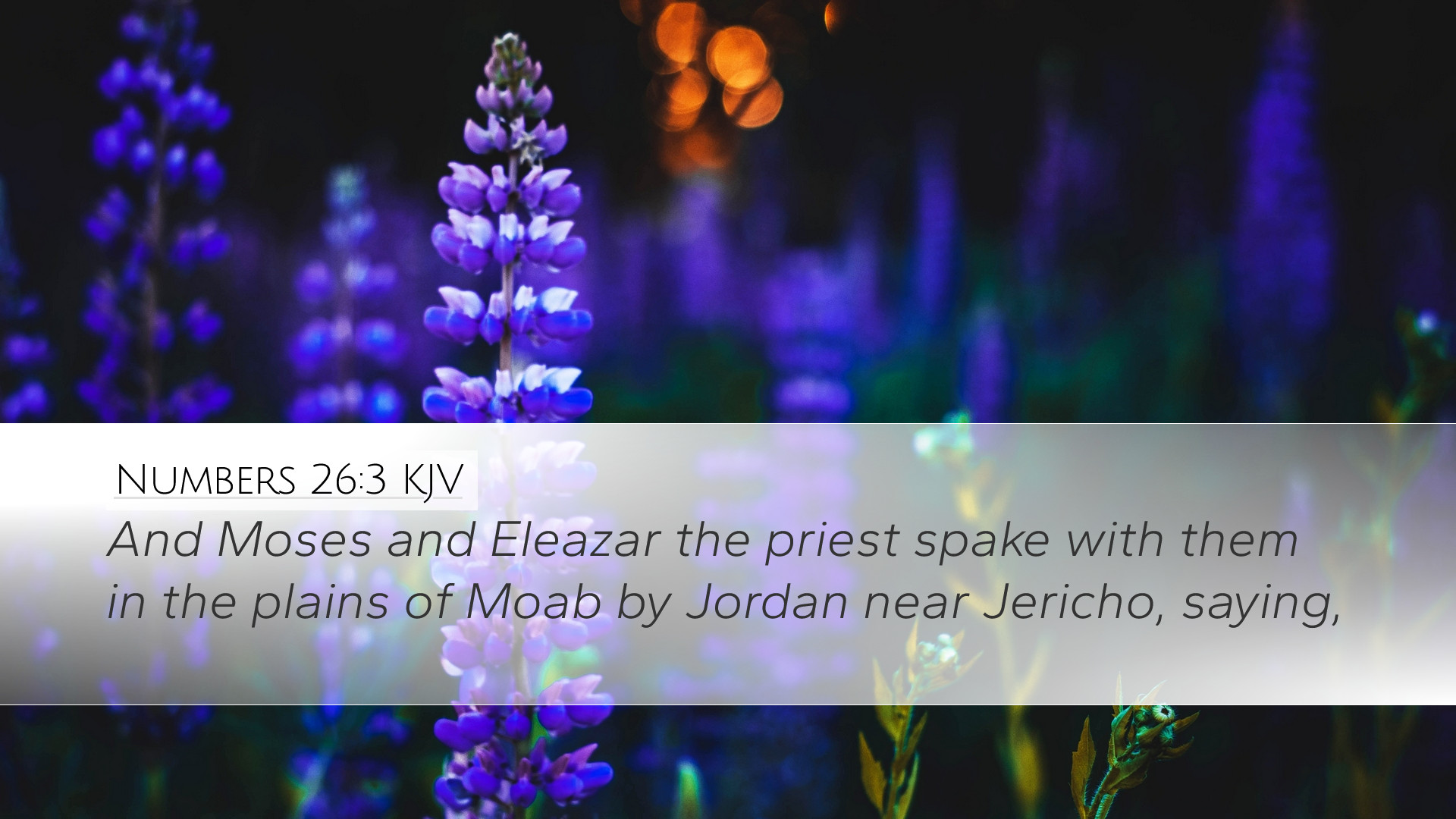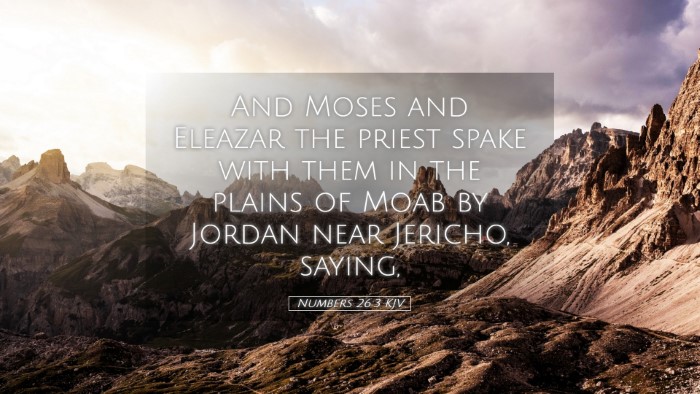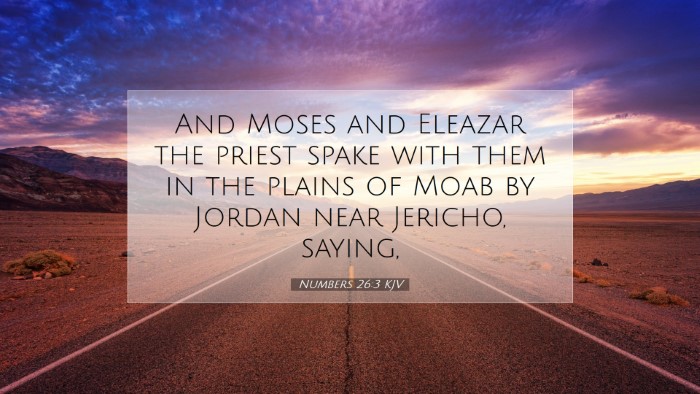Commentary on Numbers 26:3
Verse Context: Numbers 26:3 states, "And Moses and Eleazar the priest spake with them in the plains of Moab by Jordan near Jericho, saying, Take the sum of all the congregation of the children of Israel, from twenty years old and upward, as the LORD commanded Moses." This verse initiates the second census of the Israelites.
Historical and Theological Significance
This census is not merely a numerical count but serves multiple theological and practical purposes. It reflects God's faithfulness to His promises and His ongoing covenant relationship with Israel. The previous census recorded in Numbers 1 was taken when Israel was organized for their journey in the wilderness; this second census is intended as Israel is poised to enter the Promised Land.
Commentatorial Insights
Matthew Henry
Henry points out that this instruction was a fulfilling of God's earlier command, emphasizing the importance of diligence in obeying God's directives. He notes that the census serves to remind the people of their identity as God's chosen people, and it prepares them for the allocation of the Promised Land, signifying order and responsibility in their community.
Albert Barnes
Barnes highlights the leadership of Moses and Eleazar, viewing their roles as crucial in carrying out God's will. He emphasizes that the census reaffirms the structure of Israel as a nation and the importance of recognizing each individual's place within the community. Barnes notes that this enumeration also lays the groundwork for the future divisions of land among the tribes, which is pivotal for establishing their inheritance.
Adam Clarke
Clarke emphasizes the timing of the census, as it gives the Israelites a clear insight into their numbers and strength as they prepare for conquest. He draws attention to how God commands Moses to conduct the census, illustrating divine authority over the census process. Clarke posits that the commandment to count the men of military age is indicative of God's care for the operation and future of Israel, suggesting that He prepares His people for their responsibilities in the land.
Thematic Analysis
- Covenant and Promise: The act of counting signifies more than just numbers; it represents the covenant community's preparedness to receive the land promised to them.
- Leadership and Authority: The presence of Moses and Eleazar affirms the established divine order and reflects a transition of responsibility within the community.
- Individual and Corporate Identity: Each individual's inclusion in the census shows their unique role in God's plan while reflecting the corporate identity of Israel as the people of God.
Practical Applications for Today
The themes found in this passage have lasting relevance for contemporary believers. Just as the Israelites were reminded of their covenantal status, Christians today can reflect on their identity as part of God's family.
Additionally, church leaders can draw inspiration from the way Moses and Eleazar governed with divine authority, encouraging them to lead with integrity and obedience to God's word. The importance of community and individual contributions remains vital, as every member has a part to play in the body of Christ.
Conclusion
Numbers 26:3 serves as a crucial turning point in Israel's journey, encapsulating themes of obedience, leadership, community, and divine promise. By studying this verse and its commentaries, pastors, students, and theologians can grasp the importance of acknowledging God's faithfulness and understanding their role within the larger narrative of Scripture.


